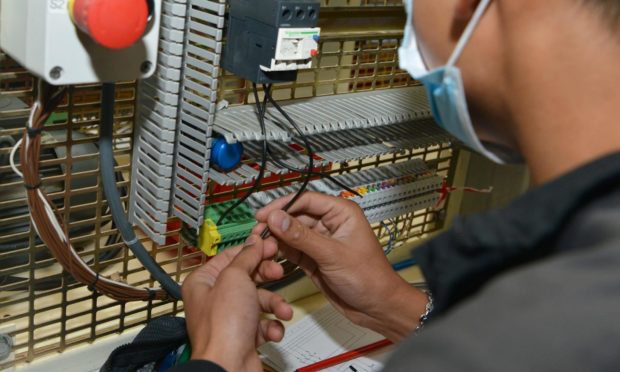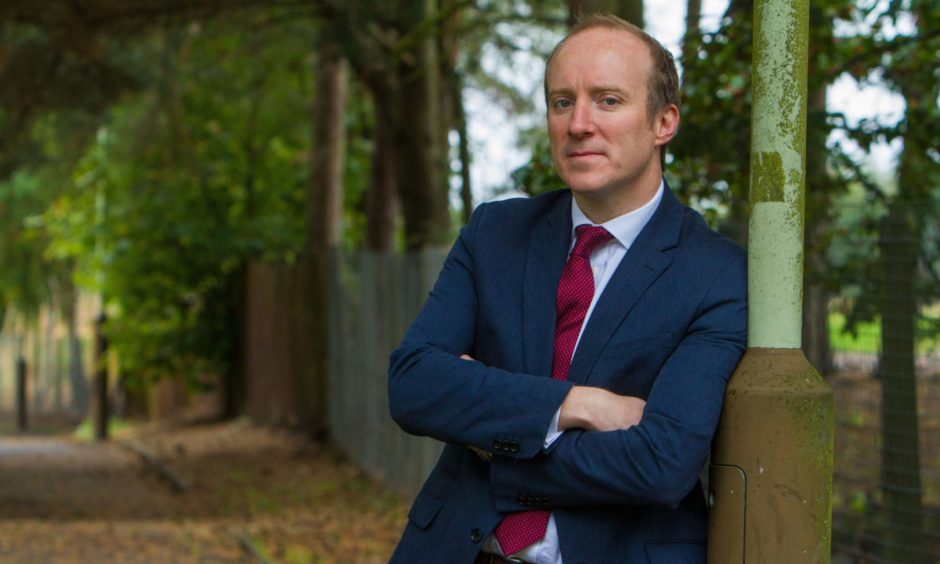Nicola Sturgeon’s flagship ambition to deliver 30,000 new apprenticeships in 2020 has been missed, the Scottish Government admits.
The coronavirus pandemic has been blamed for the failure to meet the target, as business leaders said there is a “desperate battle” to retain jobs and that firms are struggling create new posts.
Opposition politicians claimed the missed target showed the SNP’s economic approach is not working and life-changing opportunities for young people are being lost.
Young people ‘severely impacted by pandemic’
The admission was made in an answer to a parliamentary question provided by Business Minister Jamie Hepburn at the end of last year.
Mr Hepburn said Covid presented “unprecedented challenges” for businesses and many employers are “delaying and pausing” recruitment decisions.
“Due to the continued uncertainty in the labour market and the extension of the Job Retention Scheme, to the end of April 2021, it is clear we will not now meet our target of 30,000 apprenticeship starts this year,” Mr Hepburn said.
The minister described the situation as a “much more challenging labour market with young people already being more severely impacted by the pandemic”.
Labour’s Michael Marra, a Dundee councillor who hopes to stand as a north-east candidate in the Scottish election, said: “Every apprenticeship missed in these government targets is another life-changing opportunity lost.
“We need a transformation in our approach to these vital skills if we are to kickstart our economy.
“After the healthcare crisis will be the economic crisis. For many it is already here but we know that unemployment will surge in the coming months to levels unseen for generations.
“Aberdeen and the north-east is already facing the consequences of the low oil price and the many job cuts that have come with it. The city has also faced harsher lockdowns for more of the year than most of Scotland.
“The cost in jobs and wages has been significant and Aberdeen faces starting the building back process steps behind the rest of the country.

“The Scottish Government must have a relentless focus on building an economy fit for the next generation. These figures and the excuses that come with them show that the SNP’s approach is not working. “
The Scottish Government was unable to say how much the target was missed by, adding that the figures would be published later this year.
Businesses in ‘desperate battle’
Scottish Chambers of Commerce chief executive Liz Cameron said: “It should come as no surprise that apprenticeships have been disrupted by the pandemic. Fundamentally it is businesses that create opportunities for workplace learning, not governments – their role is one of planning, funding and supporting businesses to do this.
“On this basis, businesses have been in a desperate battle to retain the jobs they have, with little left over to create new ones.
“Nevertheless, apprentices are at the heart of how businesses will rebuild, and invest in our future, talented workforce.
“It is now more important than ever to pick up the slack in the talent pipeline as we look to the recovery of the economy in 2021, although this now looks like it will probably not start happening in earnest until the second half of this year.”
She added: “In order to meet the challenges we all face, we will need more apprentices being funded and more flexibility from education providers to deliver the skills we need in the manner apprentices and employers need them.”

Stuart Mackinnon of the Federation of Small Businesses in Scotland said: “We’ve heard that several large Scottish employers have decided not to take on any apprenticeships, at all, this year.
“There’s also reluctance in the wider business community to increase headcounts when business conditions are so changeable. While that’s no comfort for a young person looking for an opportunity, we can understand why Ministers haven’t met their targets.
“We’ve seen some welcome initiatives from the Scottish Government and its agencies to try to reverse this trend. Over the longer term, we want to see policymakers work harder to make the apprenticeship system deliver for smaller employers, which would help spread the risk in the system.”

